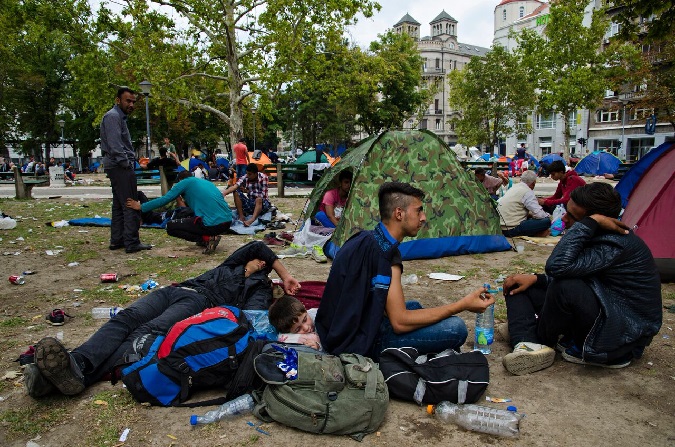The U.S.-based non-governmental organization (NGO) Human Rights Watch (HRW) recently published a report on the number of Salvadorans killed after deportation from the United States since 2013. While the findings are alarming at first glance and paint the U.S. as cruel country, the report fails to highlight the U.S.’s role in providing protection and refuge to Salvadorans during the same time period.
The HRW leads off its study by asserting that “the US government has deported people to face abuse and even death in El Salvador,” while adding that “we identified or investigated 138 cases of Salvadorans killed since 2013 after deportation from the US.”
Let’s pause for a second and look at this language. Is HRW really asserting that the U.S. government is deporting Salvadorans so that they suffer and die? By any objective assessment of the record, the United States has been doing more to protect the security and promote the interests of Salvadorans than the Salvadoran government has.
Since 2013, the United States has donated hundreds of millions of dollars in aid to help El Salvador improve its domestic conditions. Since then, the United States has provided Temporary Protected Status (TPS) to more than 200,000 Salvadorans and granted asylum to 36,000 more.
These figures do not include those who were rescued at the southern border by immigration officials after traveling for weeks in dangerous conditions. They also do not mention those who are protected by Immigration Customs and Enforcement (ICE) agents on a daily basis from criminal gangs and human traffickers who tend to prey on migrants from the country.
While the deaths of 138 Salvadorans are certainly concerning, it would be illogical for the United States to be held responsible for these deaths, or any migrant who ends up dying after deportation from the country, unless the U.S. officials ignored compelling evidence that people were going to be singled out for execution. Generalized break down of social order, and increased lawlessness in the sending countries are not grounds to qualify for automatic asylum in the U.S.
El Salvador is a country that is far from perfect. Its criminal gangs are rampant. Its economy is in turmoil. But it’s important to recognize that the lives of deported migrants rely heavily on the government of El Salvador. The United States continues to assist the nation with international aid, humanitarian and immigrant visas, and guidance from experts to improve El Salvador’s domestic situations. But the U.S. government can only do so much as it balances its own domestic issues and serves as a humanitarian leader to nearly every country across the planet.
Rather than virtue signal, HRW would be wise to single out El Salvador’s elected officials that continue to jeopardize the lives of its own citizens. People would not be fleeing that country at record rates if not for the government’s long-term neglect of the most basic interests of its citizens.




